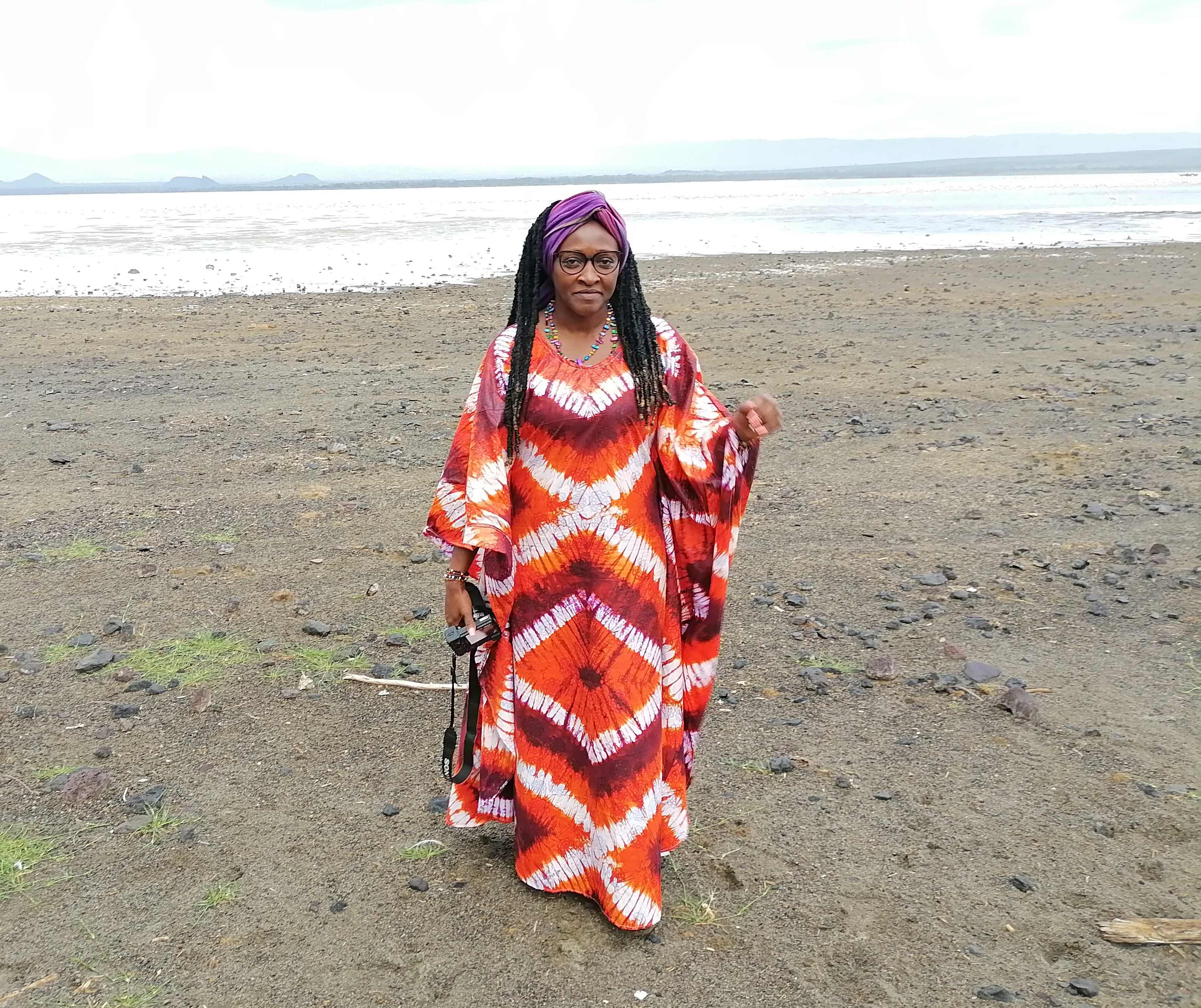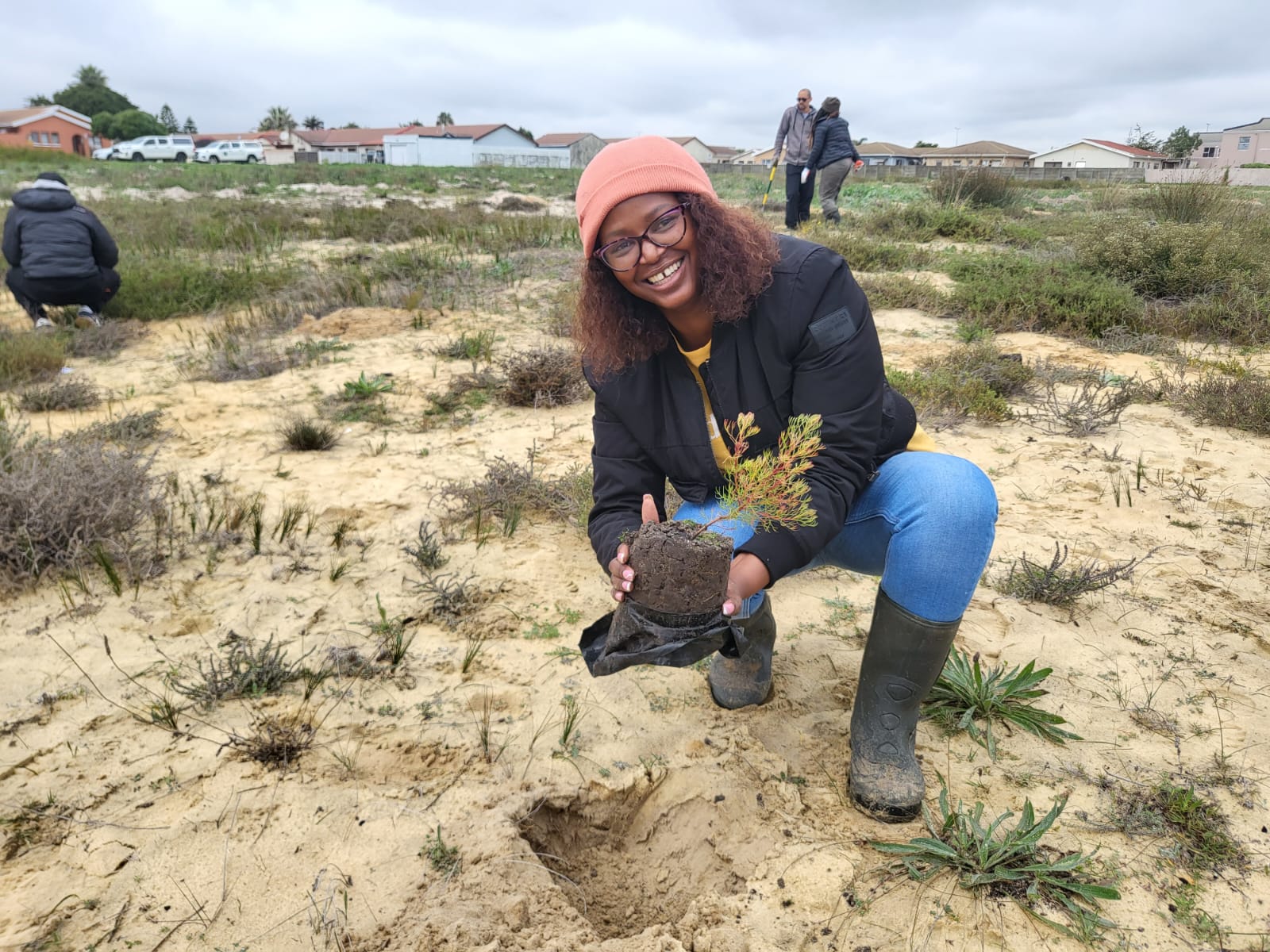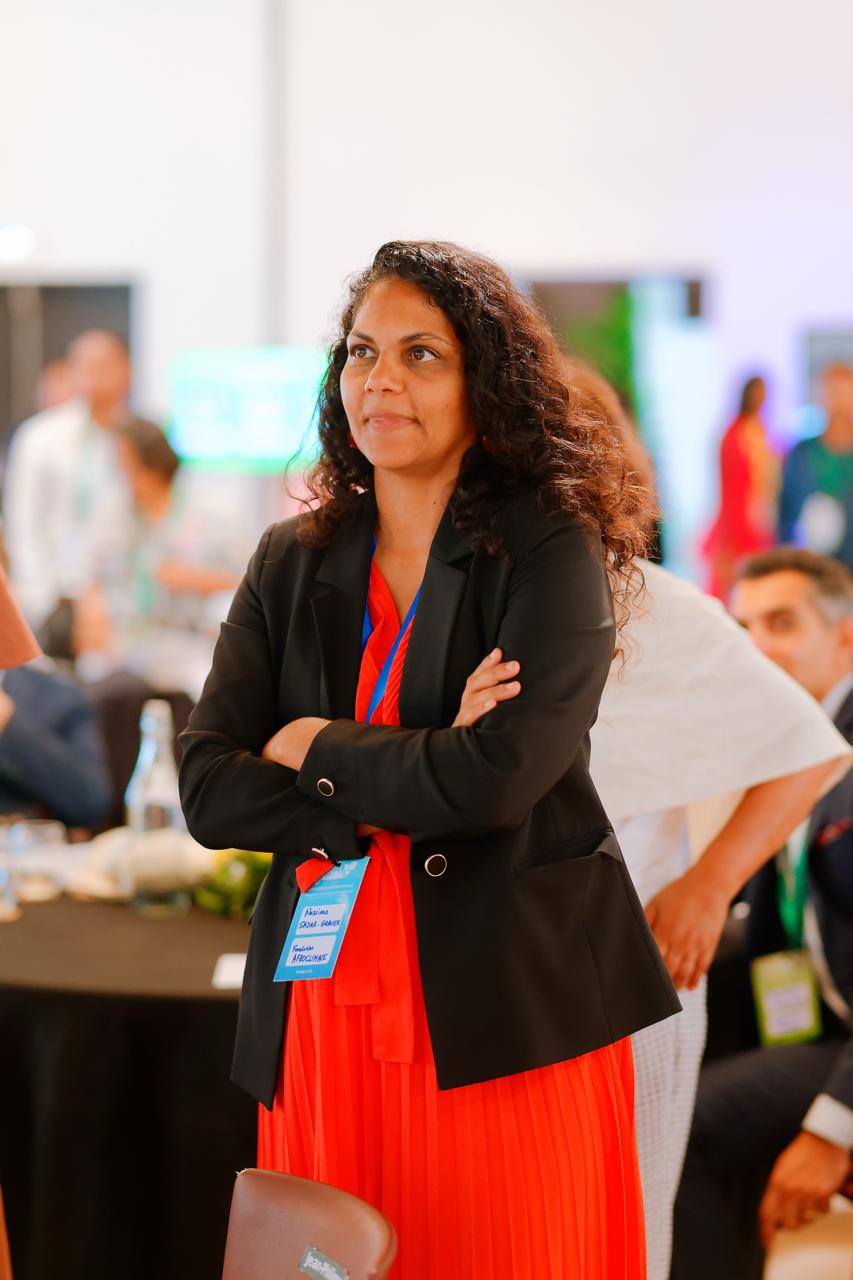When your attitude is positive, when you have good ideas, and when you contribute to change, you remain young. You become old when you stop dreaming and inspiring others.
The Minister of Youth in Cameroon once likened Marie Tamoifo Nkom's spirit to that of the first African woman to win the Nobel Peace Prize, Professor Wangari Maathai.
For nearly two decades, Marie has tirelessly championed the engagement of young people and women in conserving forests in Cameroon and the Congo basin.
The Founding President of Association Jeunesse Verte du Cameroun (AJVC), regional coordinator of the Regional Central Africa Youth Forest Network and Women for Environment 2022 Fellow is now looking to focus her energy on nurturing leadership in Africa's youth and women.
She shares insights from her journey with Damaris Agweyu.

Marie, I love how you always rock up for occasions in your African attire.
Thank you. I am very proud of my heritage.
To "fit in" and "be taken seriously", many African women in leadership positions avoid wearing African attire during formal occasions. I presume you don't have this problem?
No. Though I have faced this challenge—deciding what to wear and when. There have been formal events where some people have told me that wearing my African attire was inappropriate. But I like what I like, and I feel proud and happy when I show up like this.
In any case, I don't see how wearing my traditional prints has anything to do with anything. What is important is my message, my dignity and who I am.
In your style of dressing, are you, in fact, making a statement?
Your clothes can speak about you even when you don't say anything. So yes, it's a way to make a statement about my culture and how beautiful it is.
I was born in France, and when I was young, I always wore jeans and t-shirts. At age six, I returned to Cameroon, where I've been living since. I still wear my jeans and t-shirts when I want, but when I show up on international stages, I wear my African attire with confidence.
Have you always been confident?
It grew on me over time. At the beginning of my career, I was very shy. I hardly spoke for fear of making mistakes in front of people. With time, I have seen and learned the importance of speaking up with confidence.
How did you get into the world of conservation?
In 1998, when I was at university in Yaoundé, my uncle invited me to work at an environmental organisation he ran. The first thing I noticed was there needed to be more youth participation. At 17, I was the only young person attending meetings in this organisation.
In 1999, UNEP organised a youth forum, and I applied to participate. I was selected, and on travelling, I met people as young as 12 who were doing excellent environmental work for their countries. I realised that young people in my country were excluded from critical conversations because of a lack of information. This was not right. On returning home, I initiated and coordinated UNEP's Youth Sustainable Consumption Programmes, where we gathered, as young people, to discuss matters related to sustainable development and the environment. It went very well.
Later, in 2000, I quit my uncle's organisation to start Association Jeunesse Verte du Cameroun (AJVC). Unfortunately, around the same time, my father died—one year before I finished university. He left ten children behind. It was tough. I couldn't continue my studies because there was no money.
In 2004, I was designated the spokesperson for the UNDP Millennium Development Goals campaign. The following year, I was nominated as Youth Spoke's person for the Africa-France summit, where I represented African youth on a global stage. My work involved a lot of travelling and lobbying for youth representation. While I had gained a lot of experience, I needed an English-based education to back it up. This led me to pursue my Master's degree in Business Administration and International affairs.
I am very proud of the work I have done to represent the voices of young Africans on the global stage. It has been a rewarding journey, and now, as I approach 50, I no longer wish to be the headliner.
You feel ready to step back?
Yes. It's just a question of how to make it work, so the movement stays intact when I leave. The biggest challenge we face is funding and finding people to take ownership of the vision and values of our organisation. Much of our work is voluntary, and it is difficult to explain this to young people struggling to find employment today. "Paid or not, I engage my community"—that is our slogan. A lot of the funding goes to more prominent organisations, not local CSOs. Still, the work must be done, and young people must be involved. I am working to ensure we get the funding to carry on, but even then, we should be able to discuss crucial topics without being paid.
I have identified some young leaders in the ten countries of COMIFAC and CEEAC in the Congo Basin. Now I need to find women leaders and African experts who will train them with the necessary leadership skills to carry on with the work.
What's your next big move?
I have lined up three major projects. My first is related to transitioning my role. I want to create a strong network of young leaders who will dedicate themselves to championing environmentalism, conservation and sustainable development issues across the continent. Primarily, I want to help mentor young women to take the movement forward.
The second project is currently in its pilot phase. It is a web TV called Greening Media TV. In 2008, I set up the Regional Youth Central African Network and AJVC, which has antennas all across the ten countries of the Congo basin. I share a lot of information with this network, so I need a good communication channel. Greening Media TV will help me reach a more extensive network of young people and women on the continent. It will also help young people share their stories.
The third thing I want to do is write a book sharing my experiences and journey as a young African woman leader.
In all these projects, the goal is to inspire others with the knowledge I have gained over the years. I want to leave a strong legacy by helping boost youth and women's leadership in Africa. The WE Africa leadership program has allowed us to look at who we are and where we want to go. And this is where I want to go. I just need to find the right partners to support me on this journey.
What lessons have you learned along the way that you can pass on as advice to the women and youth of Africa?
To the women, do not accept what you do not want. Dream BIG, and trust your decisions.
My first marriage was somewhat toxic. I desperately wanted and needed to get out, but I kept asking myself what people would think and say. I had two beautiful children. It would be complicated to take that decision even for my family. Was I to quit or stay? I decided to quit. But not for long. I returned to preserve the family's expectations and avoid shame. But the problems did not go away. I was still in an abusive relationship. Again, I quit—this time for good. It was a difficult period, but I made the right decision.
If I hadn't left, I would not be where I am today. I wanted to travel, to work, to share my ideas—this would never have happened in that marriage where there were a lot of limits. So my advice to women is don't let people kill you slowly. Follow your instincts and chase your dreams. Take ownership of your life. When you find yourself in a bad situation, leave. Speak out when there's a problem. What saved me is that I spoke out and got the support I needed in the form of advice and ideas. And while all advice was not good, in the end, I followed my heart's decision.
To the young people, maintain an optimistic spirit in Africa and avoid your elder's mistakes. Remain open to life and the possibilities it presents. And you can do that at any age. I started my career as a teenager with nothing to my name. I am now 48, have achieved a lot and still have so much to contribute. When your attitude is positive, when you have good ideas, and when you contribute to change, you remain young. You become old when you stop dreaming and inspiring others. So keep fighting for what you want, and don't stop until you get it. Age is just a number.
What misconceptions do others have about you?
I have been described as a dynamic leader with a lot of energy, which is true. I like to lead. I am energetic. I am optimistic. But then people see these things and assume that I have no problems. They see me travelling around the world, meeting heads of state and high-level personalities, and think I must have everything and that I am financially stable. But this is not true. I struggle, too, because much of my work as a civil society leader is voluntary.
What have you learned about yourself over the last year that you didn't know before?
I have spent my entire life supporting everyone but myself. I didn't know I had the right to think about my needs. Yes, I am a fighter, always available to help others, but this has cost me my well-being. I have the ambition to follow my dreams. I want to change things, and I want to help. But I am also human.
Over the past year, I have enjoyed being amongst my We Africa sisters, where we learn from and support each other. I have learned the importance of prioritising myself. I am also learning that there is no shame in speaking about my achievements, my struggles and my ambitions. And I will continue to speak up and pursue my dreams of a better world with more opportunities for youth and women leadership in Africa.
***
This interview is part of a series profiling the stories of the 2022 WE Africa leadership programme fellows, African women in the environmental conservation sector who are showing up with a strong back, soft front, and wild heart.




